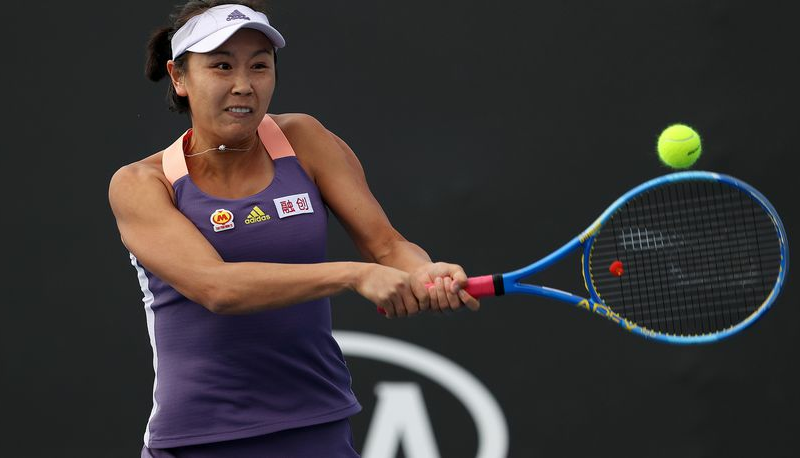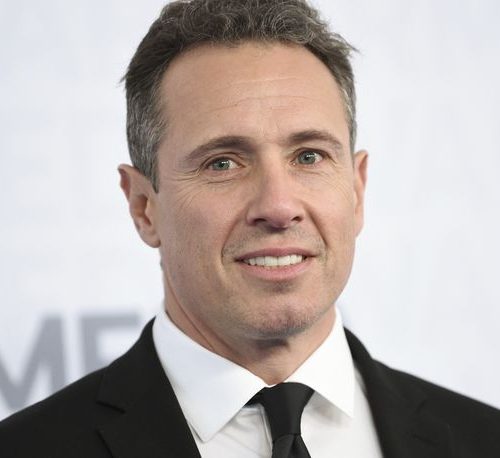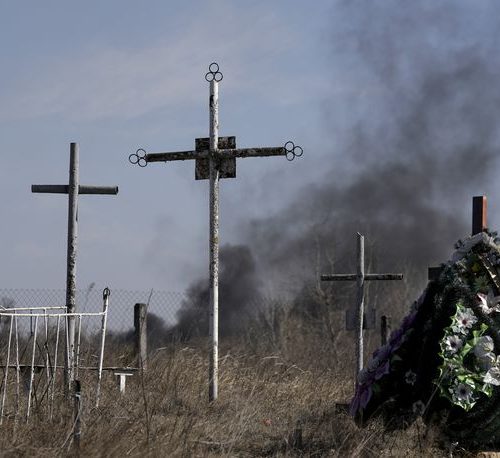By The Associated PressAlice Su – Los Angeles Times
Troy Warren for CNT #EditorsPicks
Where is Peng Shuai?
What began as a confrontation between feminism and authoritarianism within China has evolved into a wider sports and human rights showdown as the tennis world takes a stand for Peng Shuai, a Chinese player who accused a Communist Party leader of sexual abuse and has since vanished from public view.

Her inexplicable disappearance has fellow tennis stars, like Serena Williams, expressing concern on social media and calling for her safe return.
It is a case that touches on the most sensitive topic in China: abuse of power by Communist Party leaders. It also comes as Beijing prepares to host the Winter Olympics in February amid international calls for a boycott over China’s human rights violations.

Peng, 35 — a former world No. 1 player in doubles, with Wimbledon and French Open titles to her credit — accused former Vice Premier Zhang Gaoli, 75, of pressuring her into sex 10 years ago when he was the party chief of Tianjin, a port city near Beijing, and then again three years ago after he had retired. Zhang forced himself on her on that occasion in his bedroom while his wife stood guard outside, Peng wrote in a Weibo post Nov. 2 that was deleted by censors within half an hour.
“I did not consent at first. … I cried the whole time. … I said yes because I was scared,” Peng wrote. She had no proof of Zhang’s assault, because his power was overwhelming — “the world is a plaything to you,” she said — and he had prevented her from ever recording anything. But she wanted to speak.
“I have no recordings, no videos, only the true experience of my twisted self. I know that you, high and mighty Vice Premier Zhang Gaoli, have said you’re not afraid,” she said. “But even if I am like an egg cracking against a rock or a moth destroying itself in the flame, I will speak the truth about you.”
Since then, Peng had not been heard from in public — until Thursday morning, when Chinese state channel CGTN tweeted a screenshot of what it said was an email by her. “Hello everyone this is Peng Shuai,” it said. “I’m not missing, nor am I unsafe. I’ve just been resting at home and everything is fine.”


The sexual assault allegations against Zhang were “not true,” and any further news about Peng should be released only with her consent, it added.
CGTN claimed the image was of an email sent by Peng to Women’s Tennis Association Chairman and CEO Steve Simon. It did not explain why state media would have such a screenshot or why a mouse cursor remained visible in the text. It also did not post the screenshot on the Chinese internet, where Peng and all posts surrounding her allegation have been erased, and where Twitter itself remains banned.
The purported email came after the WTA issued a statement supporting Peng earlier this week, raising the pressure on Chinese authorities.
“Peng Shuai, and all women, deserve to be heard, not censored,” the WTA said. “In all societies, the behavior she alleges that took place needs to be investigated, not condoned or ignored. We commend Peng Shuai for her remarkable courage and strength in coming forward.”
Simon told the New York Times earlier this week that the WTA would be prepared to pull out of China — where it has 11 tournaments and a decade-long deal to hold its tour finals in the southern city of Shenzhen — if it did not see an appropriate investigation.
He said he had received confirmation from the Chinese Tennis Association that Peng was safe and not under physical threat, but was unable to reach her directly to confirm that.
“The WTA issue is about potential sexual assault of one of our players. That is something that simply can’t be compromised,” he said.
Tennis star Naomi Osaka tweeted Wednesday: “Censorship is never ok at any cost, I hope Peng Shuai and her family are safe and ok. I’m in shock of the current situation and I’m sending love and light her way. #whereispengshuai”
After Osaka’s tweet, comments on Weibo thanking her for speaking out about Peng were erased as well.
“I don’t know what to say besides praying she’ll be safe,” said one comment on Weibo that was quickly deleted. “We’ve already accepted that this incident will disappear online. The posts will disappear, the accounts will disappear, justice disappears, law disappears, only the victim and the pain that tortures her will not disappear. Only the the next victim’s fear will not disappear.”
Instead of reassuring those worried about her, the CGTN tweet has only heightened concerns over Peng’s safety.
“I have a hard time believing that Peng Shuai actually wrote the email we received or believes what is being attributed to her,” Simon said in a new statement Thursday, adding that he was still unable to reach Peng. The WTA demanded “independent and verifiable proof” of her safety and a transparent investigation into her assault allegation, he said.
China has often used access to its lucrative market as a bargaining chip to censor industries seeking access to China, including professional sports. Most recently, in 2019, the NBA suffered a nationalist backlash and boycott in China after Houston Rockets manager Daryl Morey tweeted in support of Hong Kong’s pro-democracy protests.
The NBA then distanced itself from Morey’s comments, issuing an apologetic statement on Weibo about the “inappropriate” remark that “severely hurt the feelings of Chinese fans.” Morey deleted his tweet.
Many leaders in sports as well as Hollywood, fashion and other cultural sectors have sought to stay in China’s good graces by keeping quiet on sensitive issues.
In a rare break with that silence, women’s tennis is doing the opposite: pressuring China to prove the safety and freedom of a Chinese player who has crossed a political red line, even if it loses the Chinese market as a result.
Lü Pin, a well-known Chinese feminist activist who now lives in the United States, said the CGTN email showed that international attention had put “immense pressure” on the Chinese government.
“The question is what else can be done now to make progress on saving Peng Shuai,” she said. If attention moved away from Peng, she would be left in “darkness,” Lü said, “which is what the Chinese government wants to see.”
Peng’s case illustrated both the strength of the #MeToo and feminist movements in China and the growing danger they face, Lü said. Many of China’s feminist and LGBTQ groups have had their social media accounts erased this year. Some Chinese feminists have also been detained.
Huang Xueqin, an independent journalist who reported on some of China’s first #MeToo cases, was detained on her way to the airport in Guangzhou last month. She has been charged with “inciting subversion of state power.”
Last year, China’s top-scoring soccer player, Hao Haidong, was purged from the Chinese internet along with his wife, Ye Zhaoying, a former badminton champion, after the two publicly denounced the Communist Party. But they had left the country and moved to Spain before speaking.
Peng’s post, while far less political and more focused on personal assault, was published while she was still in the country.
That places her in immense danger, said Yaqiu Wang, senior China researcher at Human Rights Watch. The Chinese government has a history of “disappearing” critics and extracting forced confessions from them, she said.
In 2015, five Hong Kong booksellers who’d sold books including gossip about Communist Party leaders disappeared into secret detention in China. At least one sent a letter to his family while detained, stating that he had gone to mainland China voluntarily. “My situation right now is very good, everything is fine,” he wrote.
Peng’s case showed that “athletes, no matter how prominent, are just like anyone else in the country: at the whims of the Chinese government’s unaccountable power,” Wang said. “No one is safe.”
In Other NEWS



































